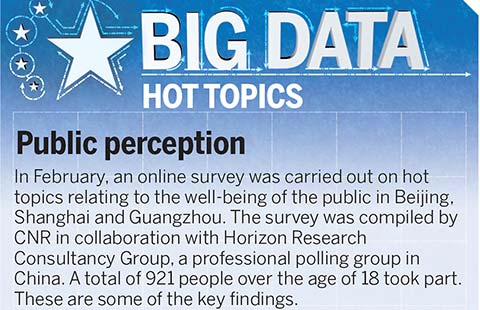Is Chinese economy sliding into dangerous position?
(Xinhua) Updated: 2012-09-22 17:47BEIJING - In the past few weeks, there has been growing debate at home and abroad about China and its economic growth, with rhetoric speculating about an imminent economic blowout in the world's second-largest economy.
It's interesting to observe the difference between what pessimists predict about China's economy and what's actually going on in the country. In the eyes of bearish economists, China seems to be the worst-performing economy and is in trouble with nightmares to come, but in fact, it is still the fastest-growing economy among the Group-of-20 members, with an economic growth rate of 7.8 percent in the first half of this year.
Such a divergence of perception comes at a time when the Communist Party of China is facing up to a number of other sensitive issues to prepare for its 18th National Congress.
Naysayers may find some support for their argument in the latest macro economic figures released by Chinese officials on investment, consumption and export in August, with these suggesting economic downward pressure is increasing in the third quarter.
Other indicators, such as the manufacturing Purchasing Managers' Index and electricity consumption, also indicate China's economy is suffering a downturn due to slack external and domestic demand, making pessimists worry about whether the country can meet its annual economic growth target of 7.5 percent this year.
As a result, foreign and Chinese investment banks including Goldman Sachs, Barclays Bank, Morgan Stanley, ABN Amro Bank, Macquarie and China International Capital Corporation Limited have lowered their prediction of China's economic growth this year.
Jim O'Neil, chairman of Goldman Sachs Asset Management, and the economic expert who came up with the term "BRIC" to represent the four fast-growing economies of Brazil, Russia, India and China, argued last month that the slowdown in developing behemoths like China and the rest of the BRIC bloc is more worrying than the eurozone crisis.
Is China's economy really sliding into a dangerous zone or so-called "hard landing" as some forecast?
Presumably, such a pessimistic prediction is based on two cyclical and structural issues.First, external demand for Chinese goods, which is closely linked to world economic cycles, will be further crippled by the ongoing eurozone debt crisis and the fragile economic recovery in developed countries, particularly with the United States facing its so-called "fiscal cliff" at this year end, driven up by its deficit-reduction measures.
The second assumption posits that China's domestic demand will shrink further in a dip lasting for quite a while due to the country's economic transition, with limited room for policymakers to take bold measures to stimulate the economy.
- China urges EU to accept its market economy status
- Sri Lanka approves recommencement of China-funded mega port city
- Political advisors pool wisdom to boost China's economy
- Audi's sales in China hit new record in February
- Great potential in China's robot market: national lawmaker
- Citibank closes sub-branch in Beijing
- China railcar giant to supply Chicago trains
- China emerges as player in chemical M&A: report
















